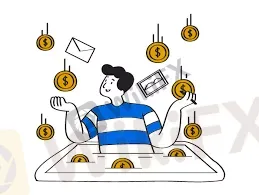简体中文
繁體中文
English
Pусский
日本語
ภาษาไทย
Tiếng Việt
Bahasa Indonesia
Español
हिन्दी
Filippiiniläinen
Français
Deutsch
Português
Türkçe
한국어
العربية
Funded Trading, The Next New Account Funding Option or The Latest Scam
Abstract:If you have been trading for a couple of years surely you must have noticed the latest trend of a sudden influx of firms that are offering traders the opportunity to get funded if they are able to prove their trading skills. Just a few years prior, these types of firms were few and far between yet now we cannot seem to live a day without hearing about a new funding firm with “better” qualification tests and profit share as if there are now a number of firms out there competing to secure the best traders. But what many do not know is the sneaky business structure of these firms which may discourage you from registering for a funding test.
If you are trading your own funds instead of another you are encouraged to look for a broker with the lowest barriers to entry so as to improve your chances of making money. This means finding the best broker with the lowest spreads, and minimum deposits to maximize your trading potential. To find such a broker I recommend you use WikiFX. This app is connected to all the regulatory boards in the world so they are able to connect you to the best-regulated brokers with the lowest spreads. They also keep a list of all the brokers who are known to have poor service and have been listed as scams, So you are able to avoid the bad apples of the forex industry before you lose your money. So for any query, you may have concerning brokers, look no further than WikiFX.

What do funded trading programs offer?
For the most part funding programs allows traders to gain access to massive amounts of money to trade with. The profits made with that money are shared according to an agreed profit split with the most common profit split being 60-40, 60% to the trader and 40% to the firm. So firms offer better or worse profit share, it just depends on the funding provider. To enter these firms one is required to pass a series of tests. This can be a demo trading account test where participants are required to reach a certain profit target to qualify. To get the opportunity to be tested one must pay some kind of subscription fee or test fee which leads to the shady manner in which some of these firms are making a profit, which is not gaining from real funded traders but benefiting from those who fail.
Trading is not an easy skill as 90% of traders are known to fail. These firms know that and hence they want as many people to register for the funding tests and fail. Most of these firms are counting on the fact that over 90% of the people who will register to trade their test will fail it and will charge high registration fees and in addition, make the test that much harder. They will even advertise better profit share deals and offer big trading accounts, but this is all meant to encourage more participants and gather more money that way. It is recommended that you then think about becoming a funded trader and that you choose a good funding program. There are a number of good ones out there you just have to be willing to look. Try and find programs that offer your subscription fee back or that offer unlimited tries.
Disclaimer:
The views in this article only represent the author's personal views, and do not constitute investment advice on this platform. This platform does not guarantee the accuracy, completeness and timeliness of the information in the article, and will not be liable for any loss caused by the use of or reliance on the information in the article.
Read more

Colorado Duo Accused of $8M Investment Fraud Scheme
ROI Cash Flow Fund duped investors of $8M in a fraudulent forex trading scheme. McPhee and Posey now face wire fraud and money laundering charges.

21 Arrested in Telangana Cryptocurrency Scam
Telangana Police arrests 21 in a cryptocurrency scam. Cybercriminals extorted money, laundered ₹8.2 crore, and transferred it via wallets linked to Dubai.

Two Californians Indicted for $22 Million Crypto and NFT Fraud
Gabriel Hay & Gavin Mayo indicted for $22M crypto fraud. Learn about the Vault of Gems scam and how to avoid NFT rug pull schemes.

Malaysian-Thai Fraud Syndicate Dismantled, Millions in Losses Reported
The Royal Malaysia Police (PDRM) has received 26 reports concerning the Nicshare and CommonApps investment schemes, both linked to a major fraudulent syndicate led by a Malaysian citizen. The syndicate’s activities came to light following the arrest of its leader by Thai authorities on 16 December.
WikiFX Broker
Latest News
AIMS Broker Review
The Hidden Checklist: Five Unconventional Steps to Vet Your Broker
Russia to Fully Ban Crypto Mining in 10 Regions Starting January 1, 2025
YAMARKETS' Jingle Bells Christmas Offer!
Why is there so much exposure against PrimeX Capital?
Two Californians Indicted for $22 Million Crypto and NFT Fraud
WikiFX Review: Is Ultima Markets Legit?
Colorado Duo Accused of $8M Investment Fraud Scheme
MTrading’s 2025 "Welcome Bonus" is Here
Malaysia Pioneers Zakat Payments with Cryptocurrencies
Currency Calculator


